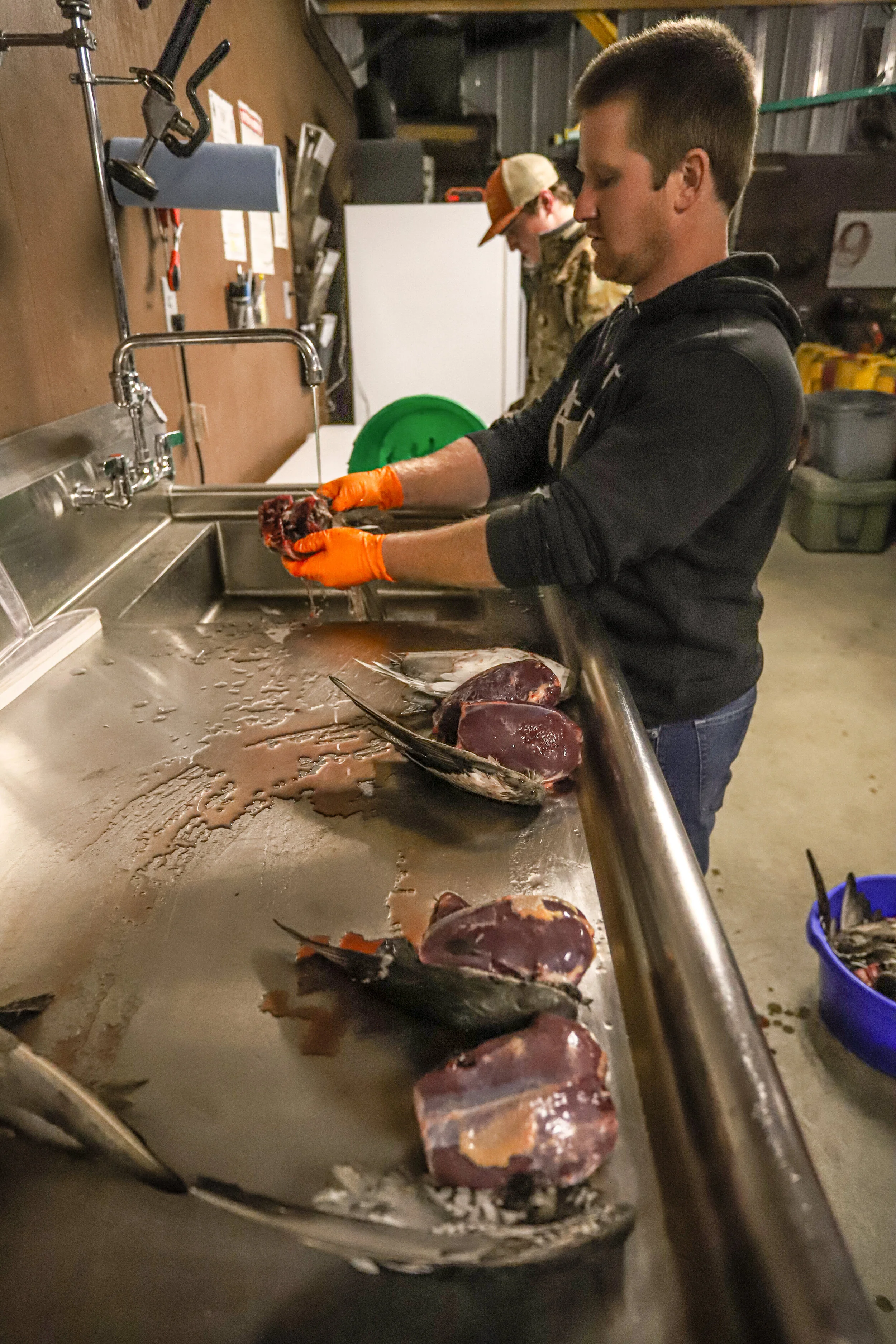Bird Carcass Disposal
Chris Ingram for SPLIT REED
You put on endless miles scouting birds to set up a banger hunt, got in early and made sure the decoy set was perfect. The wind and weather cooperated, the birds played the game, and you ended up with a hunt for the memory bank, but the work is not done. After all the fun has been had, it is time to process your birds and that job isn’t over until the meat has been stored and the carcasses have been disposed of. This trash talk may mean a little something different for everyone, but we wanted to shine a light on this shadowy topic and offer a few things to think about when disposing of your birds. I took some time to chat with my state wildlife agency and waste management division to find out what the actual regulations are here in Vermont. Bear in mind, these statutes may or may not relate to you in your state, so do your own research to find out what applies to you to stay in compliance when discarding bird carcasses.
BY THE BOOK
The U.S. Fish & Wildlife Service is the leading authority on migratory waterfowl and each state wildlife agency enforces these federal regulations. And while the U.S. Fish & Wildlife Service may not have guidelines for disposing of duck and goose carcasses, these are a few considerations to ensure you are doing things properly.
Here in Vermont, we can lawfully discard waterfowl carcasses on our wildlife management areas on the property we hunted, making sure we have a head or fully feathered wing remaining on birds in transport from the field to home. Check with the wildlife agency for the state you are hunting in for rules and regulations about discarding carcasses on state lands.
Once you’ve properly transported your birds to your home, they no longer fall under federal migratory waterfowl laws, aside from daily and possession limits. In Vermont, we are governed by new mandatory compost and food scrap laws, but luckily waterfowl carcasses are considered exempt from food waste and can go out with regular household solid waste.
Here in Vermont, it is unlawful to dispose of bird carcasses in roadside ditches, town parks, hiking trails, highway pull-offs, or anywhere outside of permitted landfills or transfer stations — doing so is considered illegal dumping and a citable offense.
DO YOUR PART
Split Reed is in no way, shape, or form here to provide legal advice nor do we condone inappropriate or unlawful behavior. We are only here to share information and provide some insight on this topic. Each individual has the responsibility to know the local, state, and federal laws that apply to them and it can be much more complicated than you think. Be sure to look into the regulations where you are and come up with a trash plan.
There may be no universally accepted method or process for disposing of carcasses, so use a little common sense to avoid encountering any embarrassing issues. Whatever you do, be responsible and be respectful to your household, your neighbors, your community, and your birds in a way that won’t put you in a questionable situation or place you and your hunting party in the headlines of the evening news.
If you live in the country or other rural areas, and it is lawful to do so, you’re in a prime position to discard carcasses on a farm, your back forty, or the woodlot of a friend or neighbor where you have permission to do so. Make a pile in a discreet, far-off location or toss birds far enough into the woods and away from houses and roads where the stench won’t offend someone, and scavengers won’t drag it out for display or for someone’s dog to find. Take your time to map out these locations ahead of time and check with other hunters in your area to identify these potential dumpsites. If you do your part, nature will take care of the rest.
If you live in the city or if you are mandated to, you may have to resolve to ditching your duck carcasses with your regular household trash like me. Carcasses will ripen quickly, so if you don’t want your family tossing you out too, you may need to run carcasses out to the dumpster or exterior trash can right away, or keep a separate container secured in the garage or in a freezer to deploy on trash day.
It is generally not advisable to compost meat in a household setting, although it is organic and will eventually break down, it can make a huge mess and you’re liable to attract maggots, rats, raccoons, the neighbor’s dog, and some nasty attention from your neighbors.
DON’T WASTE IT
Don’t be shy of this part or be in such a hurry to get rid of your birds. Carefully clean each bird to recover as much meat as you’ll eat and consider saving the legs or plucking a whole bird for the roasting pan. Many hunters enjoy making stock from leftovers. Wings and feathers can also be saved for tying flies and fishing lures or creating decorative art and home decor.
Whatever disposal methods you practice, have a plan in place prior to the hunt. This ending piece should be just as important as every other aspect. You put in so much time to scout and hunt, there’s no reason this part shouldn’t get your full attention as well. As hunters, we have a certain responsibility to follow the rules as well as maintain support through positive public perception. These are just a few things to think about that should give you a little more comfort and confidence as you complete your hunts this season.



